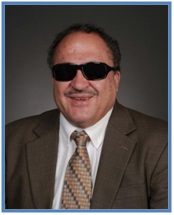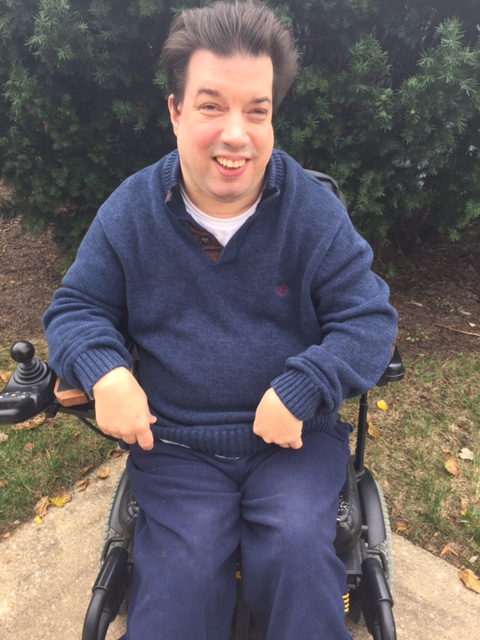| U.S. Department of
Justice Civil Rights Division |
 |
BEYOND THE CASES: 26 YEARS OF THE AMERICANS WITH DISABILITIES ACT
The Lives, Faces, and Stories Behind the ADA
Twenty six years ago, Congress passed, and President George H. W. Bush signed, the Americans with Disabilities Act (ADA), ushering in a new era of civil rights for people with disabilities in this country. The Justice Department’s Civil Rights Division enforces the ADA to ensure that people with disabilities can live, work, learn, vote, and play in their own communities – free from discrimination and able to participate in the mainstream of American life. This document provides brief case highlights – along with anecdotal stories – about the impact of the ADA on the lives of people with disabilities around our country. The cases highlighted in this document represent just some examples of the Department’s work enforcing the ADA over the last six years. To read more about our ADA enforcement, visit our website at archive.ada.gov.
EMPLOYMENT (TITLE I)
- Riverside County, California: In October 2015, the Justice Department settled an employment lawsuit against Riverside County, California, in which we alleged that the county’s employment decisions had violated the ADA. The county – because of outdated and stereotypical attitudes about epilepsy – refused to hire an applicant as a youth probation officer because he had controlled epilepsy, even though the applicant could perform all of the essential job duties. Under the consent decree, the county agreed to pay the job applicant $50,000, offer him the probation officer position, train its hiring personnel on the ADA, and report on compliance.
EMPLOYMENT (OLMSTEAD)
- Oregon: In December 2015, the U.S. District Court for the District of Oregon approved a groundbreaking agreement that the Justice Department and private plaintiffs reached with the state of Oregon that resolved alleged violations of the ADA and will impact approximately 7,000 Oregonians with intellectual and developmental disabilities who can and want to work in typical employment settings in the community.
GABRIELLE – who dreamed of saving up money to buy a home – no longer assembles nut-and-bolt kits and knee pads in a sheltered workshop for $100 to 150 per month. Instead, she works as a grooming assistant at a dog day care and boutique, earning more than $9 per hour. And as she told a local media outlet, The Oregonian, last winter, “I feel better about my life and … I ended up buying that house.” |
- Rhode Island: Following our investigation in Rhode Island, in 2013 and 2014 we reached an interim settlement agreement and a statewide consent decree. The statewide consent decree will provide relief to approximately 3,250 people. The consent decree will ensure that, over the next decade, approximately 2,000 Rhode Islanders with disabilities will have the opportunity to work in competitive integrated employment, and approximately 1,250 students with disabilities will get the services they need – including access to internships and mentoring programs – to transition into the competitive workforce.
Peter's story For seven years, PETER earned just $1.50 per hour. But now he earns ten times that amount, working for the state of Rhode Island as a custodian at a hospital. He gets along very well with his supervisors, who trust him with significant responsibility to accomplish his work independently. For the first time in his life, at age 37, Peter was able to purchase a new mattress. Before, he slept on a couch and a 30-year-old mattress he inherited from his mother. Peter also received his driver’s license and saved up enough money to buy a car. Peter and his fiancée Lori, who met at the workshop, have also gotten married and are living in an apartment in the Providence area.
Financial Services
- Wells Fargo: In May 2011, the Justice Department reached a settlement agreement under Title III of the ADA with Wells Fargo & Company to ensure that people with disabilities don’t face unlawful discrimination when trying to access financial services. Prior to the 2011 settlement agreement, Wells Fargo refused to accept Video Relay Service calls and directed customers who are deaf or have hearing loss to call the Wells Fargo TDD/TTY number, which Wells Fargo did not answer. The Department also received a variety of other complaints alleging ADA violations by Wells Fargo, including the failure to provide financial documents in alternate formats to people with vision disabilities.
Joe's story  For 10 years, JOE couldn’t make online mortgage payments on Wells Fargo’s website because he was blind and the site was inaccessible to him. Each month, Wells Fargo directed him to submit his payment by telephone, which required a $25 service fee. Today, because of the Justice Department’s settlement, all customers – including Joe and others with disabilities – can pay their bills and manage their finances without facing discrimination.
For 10 years, JOE couldn’t make online mortgage payments on Wells Fargo’s website because he was blind and the site was inaccessible to him. Each month, Wells Fargo directed him to submit his payment by telephone, which required a $25 service fee. Today, because of the Justice Department’s settlement, all customers – including Joe and others with disabilities – can pay their bills and manage their finances without facing discrimination.
EDUCATION
- Nobel Learning Communities: In January 2011, Nobel Learning Communities, Inc. (NLC), which operates a network of more than 180 preschools, elementary schools, and secondary schools in 16 states throughout the country, entered into a settlement agreement to resolve the Justice Department’s lawsuit alleging that NLC violated the ADA by excluding children with autism spectrum disorders and other disabilities from its programs. NLC agreed to implement and publicize a policy that prohibits discrimination on the basis of disability and requires its schools to provide reasonable policy modifications to ensure participation by children with disabilities; train regional executives, principals, and assistant principals on the policy; appoint an ADA compliance officer to oversee compliance with the policy; and pay a total of $215,000 in compensatory damages to the children’s families.
TRANSPORTATION
- Greyhound: In February 2016, as part of a settlement agreement reached with the Justice Department, Greyhound Lines, Inc. – the nation’s largest provider of intercity bus transportation – agreed to implement a series of systemic reforms to resolve allegations that it repeatedly violated the ADA. Under the terms of the agreement, Greyhound – which serves more than 3,800 destinations and more than 18 million passengers each year across North America – will compensate several classes of passengers who faced barriers because of their disabilities.
CHRISTOPHER, who uses a wheelchair, made a reservation for a trip across Virginia on Greyhound and notified the company he would be traveling in his wheelchair. But when he arrived to board his assigned bus, the driver could not operate the lift. He waited for a different bus and driver but when they finally arrived, personnel could not find the key to access the lift. |
VOTING
- Augusta County, Virginia: In November 2015, the Justice Department reached a settlement agreement with Augusta County, Virginia, resolving claims that the county violated the ADA by discriminating against voters with disabilities when it failed to provide accessible polling places. Many polling places in Augusta County had architectural barriers that made them inaccessible to voters who use wheelchairs or have mobility or vision impairments.
- ADA Voting Initiative: In 2015, the Civil Rights Division, partnering with U.S. Attorneys across the nation, launched the ADA Voting Initiative to ensure that people with disabilities have an equal opportunity to participate in the voting process, including in the 2016 presidential elections. The ADA Voting Initiative covers all aspects of voting, from voter registration to casting ballots at neighborhood polling places. U.S. Attorneys’ Offices may investigate the physical accessibility of local polling places, review state and local voting policies and procedures impacting voters with disabilities, and assess whether actions taken by officials and others deny voters with disabilities the full and equal exercise of their voting rights. Through this initiative, more than 1,300 polling places have been surveyed to identify barriers to access.
HEALTH CARE
- Barrier-Free Health Care Initiative: Through the Barrier-Free Health Care Initiative, U.S. Attorneys’ Offices across the nation are partnering with the Civil Rights Division to target their enforcement efforts on a critical area for individuals with disabilities. The initiative makes sure that people with disabilities, especially those who are deaf or have hearing loss, have access to medical information provided to them in a manner that is understandable to them. The initiative has included investigations and settlements with a large array of health care providers, including nursing facilities, dentists, doctors, hospitals, pharmacies, and mental health facilities.
- Dominion Hospital: In September 2013, the Justice Department reached a $55,000 settlement under the ADA with Dominion Hospital, a psychiatric facility in Falls Church, Virginia, to ensure effective communication with people who have hearing disabilities in the provision of medical services.
A young man was experiencing a mental health crisis, and his mother, VICKIE, and his godmother – who are both deaf – went with him to the emergency room at Dominion Hospital. Vickie repeatedly asked Dominion for a sign language interpreter so she could provide information about her son’s current medications and medical history, but Dominion refused. Even at the son’s last family meeting to discuss his discharge, follow up care, and treatment, the hospital still did not provide an interpreter and asked the son to interpret for his mother. This led to the son yelling at his mother, Vickie, who could not understand him, and Dominion staff yelling at Vickie because of the miscommunications between her and her son. |
CRIMINAL JUSTICE
- Hinds County, Mississippi: In June 2016, the Justice Department reached a landmark settlement agreement to reform the criminal justice system in Hinds County, Mississippi. The agreement resolves the Department’s findings that the Hinds County Adult Detention Center and the Jackson City Detention Center – which together form the Hinds County Jail – failed to protect prisoners from violence and excessive force and held them past their court-ordered release dates, in violation of the Civil Rights of Institutionalized Persons Act (CRIPA). The consent decree advances a series of key reforms to protect people with disabilities in the jail. It also calls for the jail to establish a Criminal Justice Coordinating Committee of behavioral health practitioners, advocates, and community members. This committee will monitor individuals with serious mental illness and juveniles at every stage of the criminal justice system: from arrest, to detention, to incarceration.
ACCESS TO RECREATION
- Robeson County, North Carolina: In July 2015, Robeson County, North Carolina, and the Justice Department reached an agreement under Project Civic Access (PCA), the Department’s wide-ranging initiative to ensure that cities, towns, and counties throughout the country comply with the ADA. Robeson County is geographically the largest and poorest county in North Carolina, with almost 32 percent of the population living below the poverty level. Its total population is over 130,000 and is 39.5 percent Native American. Under the agreement, the county will soon bring two of its playgrounds into compliance with current ADA standards so that children with disabilities can play there, alongside children without disabilities.
JAYLA – who lives in Robeson County, North Carolina, and is a member of the Lumbee Nation – loves sports and playing outside. |
- Wales West: In January 2010, the Justice Department settled a lawsuit against Wales West LLC, the owner and operator of Wales West RV Resort and Train and Garden Lovers Family Park in Silverhill, Alabama. The lawsuit alleged that Wales West violated the ADA when it unlawfully denied full and equal services to a child and his family because the child has HIV. The consent decree requires Wales West to establish policies, procedures, and training practices to ensure that patrons are not discriminated against on the basis of disability. In addition, Wales West was required to pay a $10,000 civil penalty to the United States and $36,000 in damages to the affected family.
The RV Resort Manager approached the Glovers at their campsite and informed them that the resort’s owner would not allow their two-year-old foster child, C.G., to use the common facilities, including the showers and the indoor pool, unless and until the Glovers could provide a documented guarantee that C.G.’s HIV did not pose a threat to other guests. The Glovers no longer felt welcome at Wales West, and decided to leave, eventually settling at another campground in Alabama. But Mr. Glover and C.G. both had mobility difficulties and the pool was too far away from their campsite for either to walk. The Glovers ended up significantly shortening their planned month-long vacation. |
- Pikes Peak Wrestling League: In October 2015, the Justice Department reached a settlement under the ADA with the operators of Pikes Peak Wrestling League (PPWL), a youth wrestling league that serves approximately 4,000 children across the state of Colorado. The settlement resolves allegations that Pikes Peak Youth Sports Association LLC and Peak Youth Sports Association violated the ADA by failing to modify their policies, practices, or procedures to allow a child who has dwarfism to “play down” one age division at the 2014 Colorado State Wrestling Championship so that he could compete with wrestlers closer to his weight and size.
Nine-year-old BRAHM has bone dysplasia, also known as dwarfism, which makes him smaller and lighter than other children his age. In the fall of 2013, when he was seven years old and weighed approximately 34 pounds, Brahm joined a wrestling club in his hometown of Colorado Springs, Colorado. |
ACCESSIBLE DESIGN
- Alabama, Georgia, North Carolina, and Tennessee: In March 2016, the owners and developers of 71 multi-family housing complexes in four states with more than 2,500 ground-floor units agreed to pay $350,000 to settle claims that they violated the Fair Housing Act and the ADA by building apartment complexes that were inaccessible to persons with disabilities. As part of the settlement, the companies also agreed to make substantial retrofits to remove accessibility barriers.
- Cedar Rapids, Iowa: In September 2015, the Justice Department reached an agreement with Cedar Rapids, Iowa, under Project Civic Access, which as noted earlier in this document, is the Department’s wide-ranging initiative to ensure that cities, towns, and counties throughout the country comply with the ADA. Under the agreement, the city is required to ensure that people with disabilities can fully take advantage of the city’s services, programs, and activities. Under the agreement, Cedar Rapids will also install, repair, or replace thousands of sidewalks and curb ramps throughout Cedar Rapids to bring them into compliance with current ADA standards to improve access for persons with disabilities. Cedar Rapids will also ensure that its city parking lots and toilet rooms are accessible to persons with disabilities and enhance accessibility throughout the city’s park system.
CATHERINE, who uses a walker, encountered problems with the entrance door to the parking pay system in a municipal lot across from the federal courthouse as well as with sidewalks when she |
ACCESSIBLE TECHNOLOGY
- Nueces County, Texas: In January 2015, the Justice Department reached an agreement with Nueces County, Texas, that requires the county to assess all existing web content and online services for conformance with industry guidelines – the Web Content Accessibility Guidelines (WCAG) 2.0 – to make web content accessible. Under the agreement, Nueces County will also ensure that people with disabilities – especially people who use wheelchairs and other mobility devices – can get inside buildings that offer county services and programs. That means the county will renovate everything from entrances, service areas and counters, restrooms, and parking so that people with disabilities can get into county buildings and use services and programs the county offers. Sidewalks and curb cuts all over the county will also be targeted – another change that promises to significantly improve life for people with disabilities in Nueces County.
The agreement with Nueces County will allow people with disabilities, like MARSHALL, who was invited to present at the Coastal Bend Hurricane Conference in Nueces County. Unfortunately, when Marshall tried to register online for the conference, he wasn’t able to do so because he is blind. The forms on the county website were inaccessible to him because he uses a screen reader. |
- Lousiana Tech University: In July 2013, the Justice Department reached a settlement with Louisiana Tech University and the Board of Supervisors for the University of Louisiana System to remedy alleged violations of the ADA. The settlement resolves allegations that the University violated the ADA by using a version of an online learning product that was inaccessible to a student who is blind. The student’s lack of access to the course materials persisted for nearly one month into the University quarter, at which point the student was so far behind in his coursework that he felt compelled to withdraw from the course. The settlement also resolves allegations that in a subsequent course, the same student was not provided accessible course materials for in-class discussion or exam preparation in a timely manner.
 When a new key finally arrived, Christopher was already three hours behind schedule and missed his connecting bus. Eventually he asked a friend to pick him up, which involved the rental of an accessible van. Unfortunately, on his trip back home several days later, he experienced similar problems. Christopher was exhausted, frustrated, and inconvenienced by extended delays on what should have been routine trips.
When a new key finally arrived, Christopher was already three hours behind schedule and missed his connecting bus. Eventually he asked a friend to pick him up, which involved the rental of an accessible van. Unfortunately, on his trip back home several days later, he experienced similar problems. Christopher was exhausted, frustrated, and inconvenienced by extended delays on what should have been routine trips.  Jayla has spina bifida and uses a wheelchair. The old setup of the county’s playgrounds, which all had a large rubber border and sand surface, prevented her from using them. Today, because of the reforms mandated by the Justice Department’s agreement, she will soon be able to access the playgrounds, so she can enjoy her childhood and play with her siblings, just as all kids deserve.
Jayla has spina bifida and uses a wheelchair. The old setup of the county’s playgrounds, which all had a large rubber border and sand surface, prevented her from using them. Today, because of the reforms mandated by the Justice Department’s agreement, she will soon be able to access the playgrounds, so she can enjoy her childhood and play with her siblings, just as all kids deserve.
 visited the Fair Housing Office at the Veteran’s Memorial Building. Similarly,
visited the Fair Housing Office at the Veteran’s Memorial Building. Similarly,